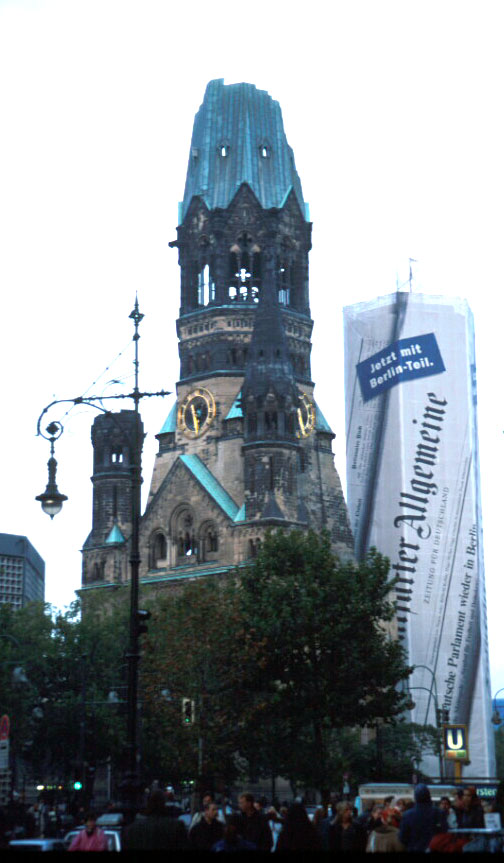Daniel Liebeskind, the architect of the new Jewish Museum in Berlin, argued that "Berlin doesn't need any new order. It is a perfectly ordered, perfectly beautiful city. . . . It is not chaos . . . but order of a different kind*." (Gary Wolf, "Venture Kapital," Wired June 1998, 142fff, 151)
Andreas Huyssen continues this argument, in favor of complexity:
At stake is the question of the center* -- of the centered city. . . . A mix of the old and the new, the timid and the creative . . . . Building on its historical decenteredness as architectural urban space and maintaining the city as a palimpsest of different times and histories might actually be preferable to the notion of a centered Berlin, which inevitably would revive the ghosts of the past . . . . Berlin as palimpsest implies voids, illegibilities, and erasures, but it offers also a richness of traces and memories, restorations and new constructions that will mark the city as a lived space. (Andreas Huyssen, "After the War" Harvard Design Magazine, Winter/Spring 2000, 75-77)

If the city is becoming even more complex in non-centered, non-hierarchical ways, let that be an inspiration for dealing with suburban sprawl.
(c) David Kolb, 1 August 2001